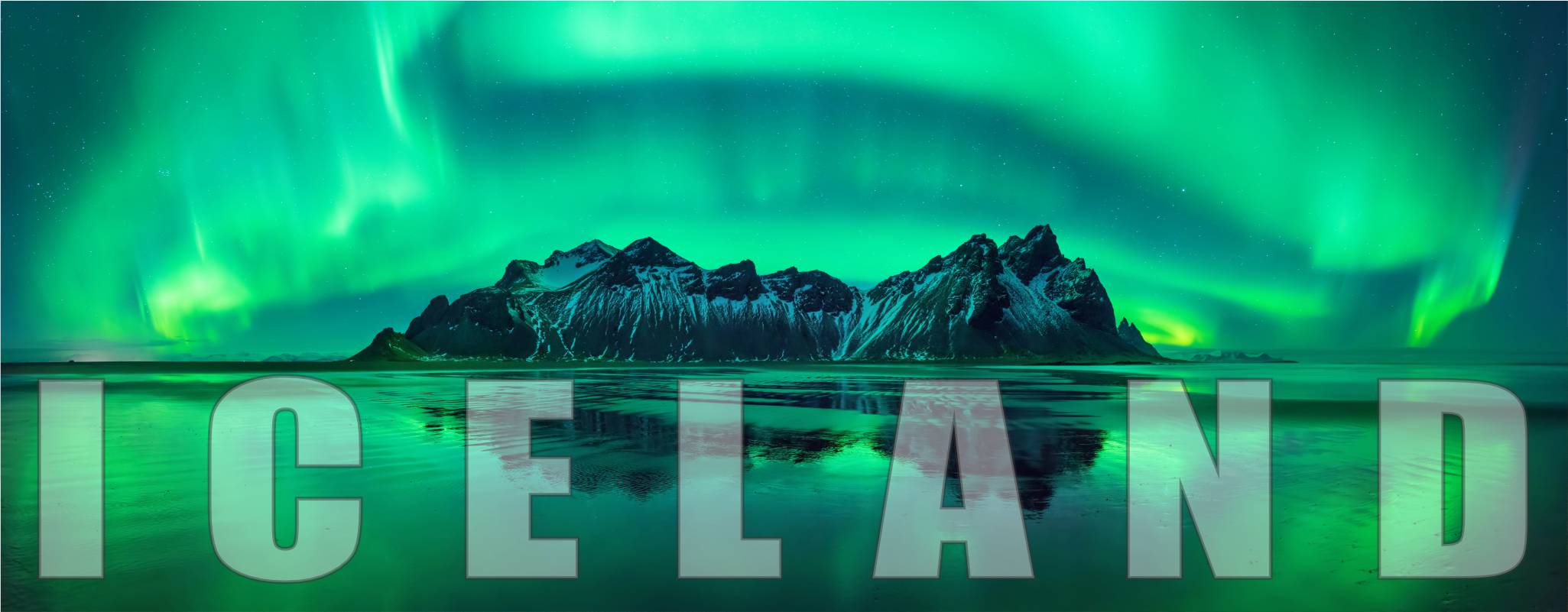


Iceland location, climate & geography
Iceland is located in the North Atlantic Ocean, just south of the Arctic Circle. The country’s geographic isolation has resulted in a landscape shaped by volcanic activity and glaciation, making it one of the most unique environments in the world. The island is characterized by a combination of volcanic mountains, expansive glaciers, lava fields, and geothermal springs, earning it the nickname "the land of fire and ice."
Iceland’s central highlands are largely uninhabitable, covered by deserts of lava, ash, and glacial deposits. The coastal areas, where most of the population resides, are more hospitable, with fertile plains and fjords that offer stunning views of the surrounding sea.
The climate in Iceland is classified as subarctic and oceanic, influenced by the Gulf Stream, which brings milder temperatures than might be expected for such a northern location. Winters are cold but relatively mild compared to other regions at the same latitude, with temperatures averaging around freezing. Summers are cool, with temperatures typically ranging from 10 to 15 degrees Celsius. Despite its latitude, Iceland experiences long days of sunlight in summer and extended darkness in winter, including the midnight sun in June and near total darkness in December.
The country’s volcanic activity is evident in its numerous geysers, hot springs, and active volcanoes, such as Eyjafjallajökull and Hekla. Iceland’s glaciers, including Vatnajökull, the largest in Europe, cover about 11% of the island’s surface and contribute to the many rivers and waterfalls that define its landscape.
Iceland’s unique geography and climate create a stunning backdrop for outdoor activities, from hiking and glacier trekking to soaking in geothermal baths and exploring ice caves.
10 things to know when travelling to Iceland
1. The Blue Lagoon: One of Iceland’s most famous attractions, this geothermal spa is known for its milky-blue waters rich in minerals like silica and sulfur.
2. Northern Lights: Iceland is one of the best places in the world to witness the Aurora Borealis, particularly from September to April.
3. Thingvellir National Park: This UNESCO World Heritage site is where the North American and Eurasian tectonic plates meet, and is also the site of Iceland’s ancient parliament.
4. Volcanic Activity: Iceland has about 130 volcanic mountains, with eruptions occurring roughly every 4-5 years, making it one of the most volcanically active places on Earth.
5. Midnight Sun: During summer, especially around the solstice, Iceland experiences nearly 24 hours of daylight, offering endless opportunities to explore.
6. Icelandic Horses: These unique, small but sturdy horses are famous for their fifth gait, the tölt, and are a beloved part of Icelandic culture.
7. Waterfalls: Iceland is home to some of the world’s most stunning waterfalls, including Gullfoss, Seljalandsfoss, and Skógafoss, each with its own distinct beauty.
8. Whale Watching: Iceland’s coastal waters are prime spots for whale watching, particularly in summer, with species like humpbacks and minke whales often seen.
9. Geothermal Energy: Iceland is a leader in renewable energy, with nearly 90% of homes heated by geothermal power.
10. Icelandic Language: Icelandic has changed little since the Viking era, and many Icelanders can still read the ancient sagas in their original form.
Last update August 2024